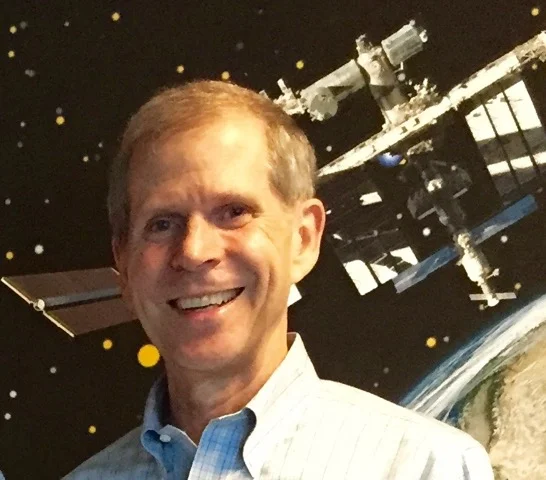Ep. 018: Jim Zimmerman, NASA: Space Exploration: A Powerful Symbol of Global Cooperation
In this episode, Susan interviews James Zimmerman (“Jim”), a retired National Aeronautics and Space Administration (NASA) official, who describes space exploration as a case study for international cooperation. Jim recounts the history of space exploration as a tale of competition evolving to cooperation. Currently, the International Space Station, circling 250 miles above the earth’s surface, is a beautiful metaphor for what we can create when we tap into the exponential potential of cooperation among countries.
Jim talks about his personal journey and how he came to work in the field of international relations, then with NASA and his tenure as President of the International Astronautical Federation (the “IAF”), an international organization based in Paris whose members include space agencies, companies and professional societies.
Jim describes how space exploration is a relatively new phenomena which began in the 1950’s during the Cold War and the competition between the then Soviet Union and the United States. The seeds that nurtured space activities in that era “not collaborative at all, they were political, competitive and focusing on which political system could produce the best types of results.” Over the years the paradigm has shifted from nationalism and competition, to an environment where scientists and engineers realize that collaboration is not just an option, but the best way forward given the limitations of financial and human resources. The partnerships have been successful in spite of the fact that the technologies they are using sometimes have both military and civil uses and therefor are restrticted.
Jim talks about the value of the IAF, with more than 300 member organizations including most of the global space program stakeholders who meet annually. The IAF was founded in 1951 as a non-governmental organization to establish a dialogue between engineers and scientists around the world and to lay the foundation for international space cooperation. During the Cold War, it was one of the few places that space officials from the Soviet Union and the western countries could actually talk to each other informally without political constraints. The organization continues to offer that opportunity for informal exchanges with colleagues from China. What’s especially exciting to Jim is how many younger people now participate in the IAF with over 1/3 of its participants being under 35 – a dramatic change that bodes well for space collaboration and for peaceful collaboration in a very challenging and complex field.
Jim tells some wonderful stories about the important lessons he learned about intercultural negotiations and the need for respecting people from other parts of the world, cultural differences, listening and understanding different perspectives. How do you move forward when your partners are Russian, Japanese, European, Chinese, Indian, South American and you must build consensus?
Jim’s final reflections are about how space is a unique place to invest in a peaceful future. For the relatively small cost we pay in each of our countries, space exploration brings out the best in humanity.
p.s. My apologies for mis-pronouncing Carl Sagan’s name.


